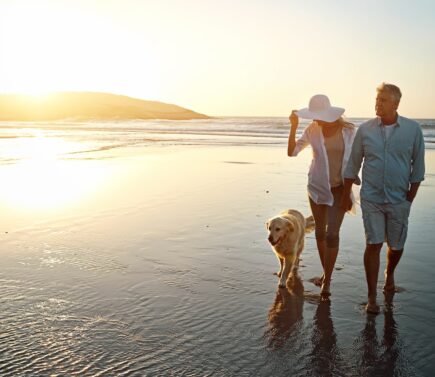Groundbreaking new study reports benefits for sunshine and sunbed exposure in northern climates

From The Vitamin D Society
TORONTO, Ont (August 20, 2024) – A large, cohort study from the UK has reported that people who have higher exposure to UV through sunlight or sunbeds have a lower risk of all-cause, cardiovascular disease and cancer mortality. The study adds to the growing evidence that the health benefits of UV exposure may outweigh the risks in low-sunlight environments.
The Vitamin D Society has been educating people on the benefits of non-burning UV exposure – the body’s primary source of vitamin D – for 15 years. This is the first time that sunbed users have been included in a large study of health benefits and mortality.
The study looked at UV exposure from two separate means, sunbed use and solar radiation at different latitudes. UVB exposure through sunlight or sunbeds produces vitamin D in your skin which is shown to have a multitude of positive effects on health and mortality. UVA exposure through sun or sunbeds has also been shown to react with nitric oxide stores in the skin through vasodilatation which reduces blood pressure and cardiovascular disease.
- Solarium users had a 15% lower risk of all-cause mortality, a 23% lower risk of CVD mortality, a 14% lower risk of cancer mortality, and a 12% lower risk of non-CVD/non-cancer mortality compared to solarium non-users in fully adjusted models.
- People living at more southern latitudes receiving 2000 kJ/m2 higher residential shortwave radiation (SWR) in the UK had a 12% lower risk of all-cause mortality, a 19% lower risk of CVD mortality, and a 12% lower risk of cancer mortality in fully adjusted models.
Sunbed users (vs non-users) and participants living at lower latitudes with higher UV exposure, both had higher levels of vitamin D.
Melanoma was tracked and the study found that sunbed users and those receiving higher UV sun exposure had slightly higher melanoma incidence but lower melanoma mortality, however, the associations were not statistically significant.
The study from the University of Edinburgh used data from the UK BioBank for 395,000 people of white, European descent from across the UK. This included 18,177 who were solarium users. The study was funded by Health Data Research UK and was published in the journal Health and Place.
“Our paper adds to a growing body of evidence suggesting that in lower light environments, relatively higher exposure to UV is good for your health. Though there may be an increased risk of skin cancer incidence with higher UV exposure, this risk appears to be outweighed by a larger reduction in the risk of death from cancer and cardiovascular related disease.”
— Professor Chris Dibben, University of Edinburgh’s School of GeoSciences
“Dermatologists have traditionally only considered possible harm to the skin caused by sunlight, much of which dates from the experience of white-skinned individuals in sunny countries such as Australia. When the UV index is very high, protecting skin is important. However, this research shows that in the UK, the balance of benefit and risk from sunlight exposure is probably very different from that in sunnier countries.”
— Professor Richard Weller, University of Edinburgh’s Centre for Inflammation Research
“This study reinforces the importance of UV exposure for optimal human health. Current sun guidelines which focus only on the risks of sun exposure need to be reevaluated and rewritten to also consider the benefits. UVB exposure through sun or sunbed makes vitamin D naturally through your skin and this may provide different and additional health benefits than vitamin D supplements.”
– Perry Holman, Executive Director, Vitamin D Society
About the Vitamin D Society:
The Vitamin D Society is a Canadian non-profit group organized to increase awareness of the many health conditions strongly linked to vitamin D deficiency; encourage people to be proactive in protecting their health and have their vitamin D levels tested annually; and help fund valuable vitamin D research. The Vitamin D Society recommends people achieve and maintain optimal 25(OH)D blood levels between 100 – 150 nmol/L (Can) or 40-60 ng/ml (USA).
To learn more about vitamin D, please visit www.vitamindsociety.org
SmartTan.com news articles regularly report medical and scientific information to keep you abreast of current events related to UV light. This information is not intended to be used by any party to make unwarranted health claims to promote sunbed usage. Indoor tanning businesses are obligated to communicate a fair and balanced message to all clients about your products and services including the potential risks associated with indoor tanning. Contact your Smart Tan representative to find out more about what you can and can’t say in your tanning salon business.
© 2024 International Smart Tan Network. All rights reserved.
